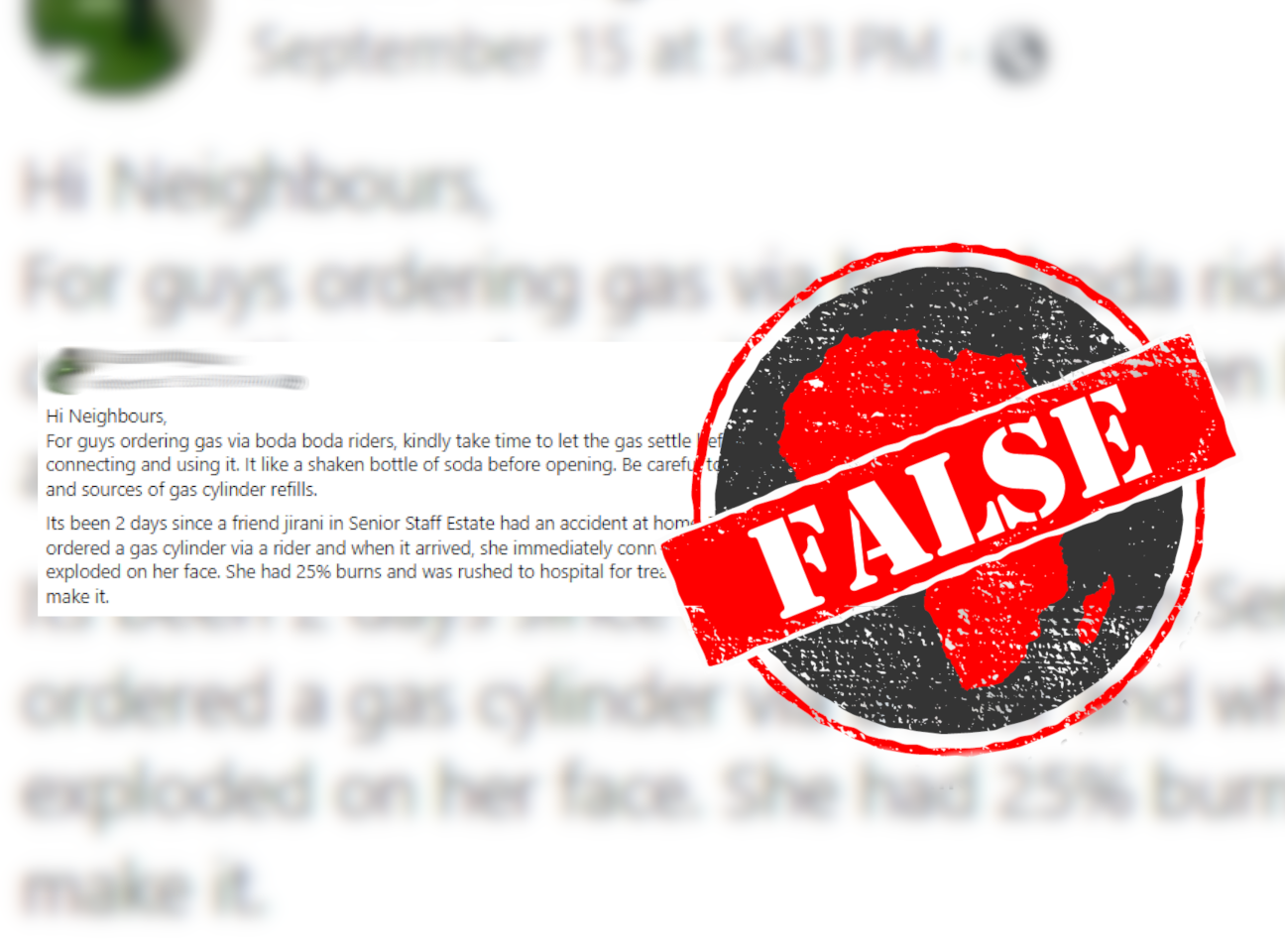A message claiming that a gas cylinder transported on a motorbike will explode when it’s used has been widely shared on Facebook in Kenya.
“Hi Neighbours, for guys ordering gas via boda boda riders, kindly take time to let the gas settle before connecting and using it. It like a shaken bottle of soda before opening. Be careful to check seals and sources of gas cylinder refills,” it warns. Boda bodas are motorbike taxis common in East Africa.
The message continues: “Its been 2 days since a friend jirani in Senior Staff Estate had an accident at home. The wife ordered a gas cylinder via a rider and when it arrived, she immediately connected it and it exploded on her face. She had 25% burns and was rushed to hospital for treatment. She didn't make it.”
But can a gas cylinder really explode if it’s connected and lit immediately after being transported on a motorbike? We checked.

Designed to withstand rough treatment
Africa Check asked Arthur Kinyua, an engineer at Kenya’s energy and petroleum regulator, about the claim. He dismissed it.
“Normally, an explosion occurs in the event of a boiling liquid vapour explosion reaction, which usually happens when a cylinder is subjected to external heat,” he told us in a phone interview.
Kinyua said liquefied petroleum gas (LPG) cylinders are designed to withstand rough treatment as they are transported along distribution channels. “Whether using a car or a motorbike, shaking might occur at one point, but it’s not dangerous.”
But he added that cylinders bought from unlicensed dealers might not be safe.
“Some consumers purchase cylinders from illegal dealers and these might not be in good condition,” he said.
Africa Check has previously debunked a similar claim that gas cylinders can explode if shaken.
Republish our content for free
For publishers: what to do if your post is rated false
A fact-checker has rated your Facebook or Instagram post as “false”, “altered”, “partly false” or “missing context”. This could have serious consequences. What do you do?
Click on our guide for the steps you should follow.
Publishers guideAfrica Check teams up with Facebook
Africa Check is a partner in Meta's third-party fact-checking programme to help stop the spread of false information on social media.
The content we rate as “false” will be downgraded on Facebook and Instagram. This means fewer people will see it.
You can also help identify false information on Facebook. This guide explains how.


Add new comment